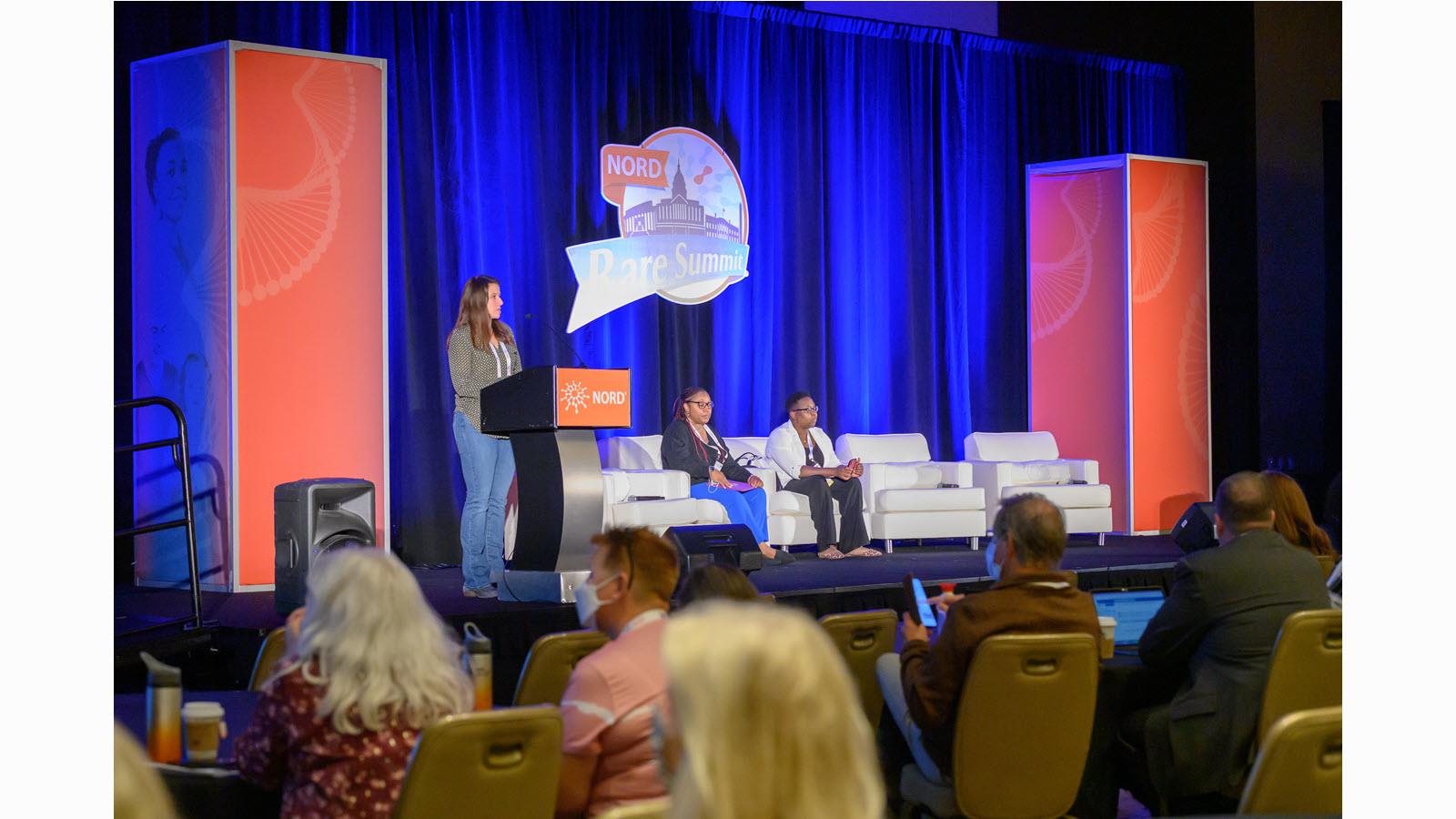Because there are about 7,000 known rare diseases, the journey for any one patient can be a lonely one. Where can they go to feel less alone and learn from one another?
This month in Washington, D.C., the perfect meetup was the 2022 National Organization for Rare Diseases (NORD) Breakthrough Summit, said Stephanie Houh, a rare disease patient and an innovation strategist. Houh lives with hypophosphatasia, a rare disease characterized by problems with mineralization, a process needed to form healthy bones and teeth.
“The thing about rare disease is if you host a conference for my specific condition, disease state and [gene] mutation, you're going to end up with a conference of one,” she said. “There's no reason that you should have to problem solve in a silo if you can talk to other people who are going through the same experiences, but maybe for a different disease.”
The two-day, in-person summit brought together over 800 people from the rare community, including patients, caregivers, advocacy group leaders, researchers, industry representatives, policy experts and other thought leaders. It’s a unique opportunity to network, share stories and gather information about conditions that affect fewer than 200,000 people in the United States.
Sessions dove into important issues for patients, such as developing a patient community, getting your voice heard in clinical trials and ensuring access to care.
The conference gave caregiver Allaina Wellman a wealth of resources, she said. She compared it to a bountiful feast with lots of leftovers.
“Coming here has really helped kind of solidify what our next goals should look like,” said Wellman, who founded the 17Q12 Foundation to advocate for her son who has a rare disease. “Being able to see how each [organization] circumvented a problem helped to determine what maybe we can avoid or take with us in the future.”
Houh agreed, saying events like the summit give her fresh insights about how to live a healthier life, both physically and mentally. Talking with people going through the same experiences and hearing what scientific advances are on the horizon always makes it worth the trip, she said.
“Knowing that there are people who've dealt with the same challenges you've faced – or challenges that you haven't faced and sound absolutely absurd – to see that folks still come out on the other side, with a smile on their face, or at least an interesting story to tell is energizing and does give you a lot of hope,” Houh said.



